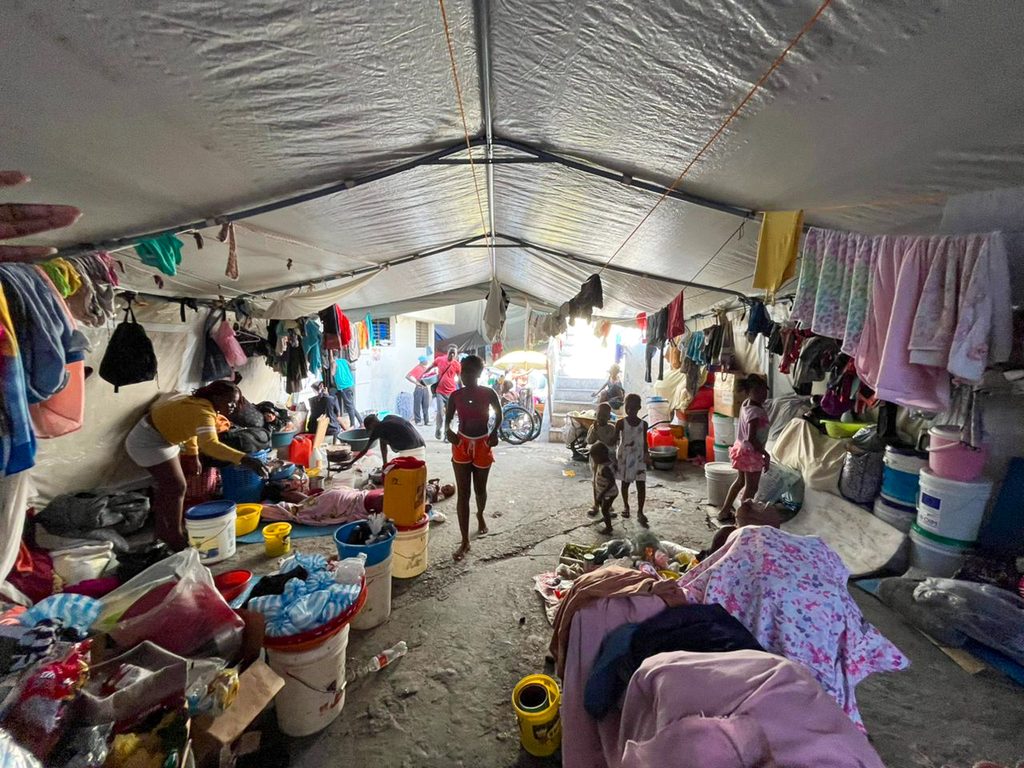Haiti’s internal displacement crisis reaches critical levels
Plan International Calls for Immediate Action to Protect Children and Provide Humanitarian Aid
16 January 2025The international humanitarian and development organisation, Plan International expresses its deep concern over the alarming increase in internal displacement in Haiti.
Now exceeding one million people, according to the most recent data from the International Organization for Migration (IOM), the crisis continues to have a profound effect. In Plan International’s response areas across Port-au-Prince, Southeast, and Artibonite Departments, staff are witnessing firsthand the devastating impact this crisis is having on children and vulnerable communities, with a particular focus on the challenges faced by girls and young women.

“The families that we support have been forced to flee multiple times, facing extremely precarious conditions. Children are the most affected, with limited access to essential services and increasing exposure to risks of violence and exploitation. We have seen that displaced girls are especially vulnerable to sexual abuse and harassment” said Prospery Raymond, Country Director of Plan International Haiti, after visiting the shelters (IDP sites) where the organization operates.
“Children are the most affected, with limited access to essential services and increasing exposure to risks of violence and exploitation”.
Prospery Raymond, Country Director of Plan International Haiti
Internal displacement in Haiti also impacts public health, according to UNICEF’s Humanitarian Situation Report (November 2024). Overcrowding and limited resources in affected areas increase vulnerability to diseases like cholera, which has caused more than 1,300 deaths since the beginning of the outbreak in October 2022, and more than 87,000 suspected cases (Ministry of Health, Nov. 9, 2024), the crisis continues to escalate.
Children at Risk: Violence, Hunger, and Lack of Education
The prolonged closure of schools and their use as shelters for those internally displaced exacerbates the crisis by preventing thousands of children from accessing education. Additionally, access to food and basic services is increasingly limited, raising levels of child malnutrition, and putting the lives of the most vulnerable at risk. For instance, Plan International has observed severe nutritional deficiencies among pregnant and breastfeeding women and has also collected testimonies of girls who are sexually exploited to earn money, either to cover their personal needs or those of their families, leading to early pregnancies and more school dropouts.
Widespread violence and the closure of borders with the Dominican Republic further worsens the situation, limiting opportunities for support and humanitarian assistance. Plan International is also deeply concerned about the impact on the well-being and mental health of children who are being deported. The combination of insecurity, lack of access to basic services, and massive displacement has created a complex crisis of protection, hunger, and violence that requires an urgent response.
Plan International’s Actions in Response to the Crisis
Since 2022, Plan International in Haiti has been responding to this emergency with a focus on child protection and basic relief for displaced families. As part of our current response, we are working inside camps for internally displaced persons in the metropolitan area of Port-au-Prince and Artibonite, where violence continues to rise.
Our key interventions focus on providing immediate support to vulnerable communities, including the establishment of safe spaces for children, and the distribution of hygiene kits and menstrual health supplies for adolescent girls and young women. We are also equipping community leaders with training in child protection, psychological first aid, and secure referral processes, enhancing their capacity to safeguard children and support their well-being effectively.
Additionally, we are providing cash assistance to vulnerable households to help meet their basic needs, especially for purchasing food. During emergencies, access to income and essential goods is often disrupted, leaving families struggling to afford necessities. Cash assistance offers a flexible, immediate solution, allowing families to prioritize their urgent needs while supporting local markets and economies. At the same time, we are conducting rapid needs assessments and gathering testimonies from displaced families to ensure our response is informed, gender-focused and age appropriate.
“The international community cannot ignore the magnitude of this crisis. It is urgent to prioritize Haiti’s situation and ensure that displaced children have access to protection, education, and humanitarian assistance,” emphasized Raymond.
“The international community cannot ignore the magnitude of this crisis. It is urgent to prioritize Haiti’s situation and ensure that displaced children have access to protection, education, and humanitarian assistance”.
Prospery Raymond, Country Director of Plan International Haiti


